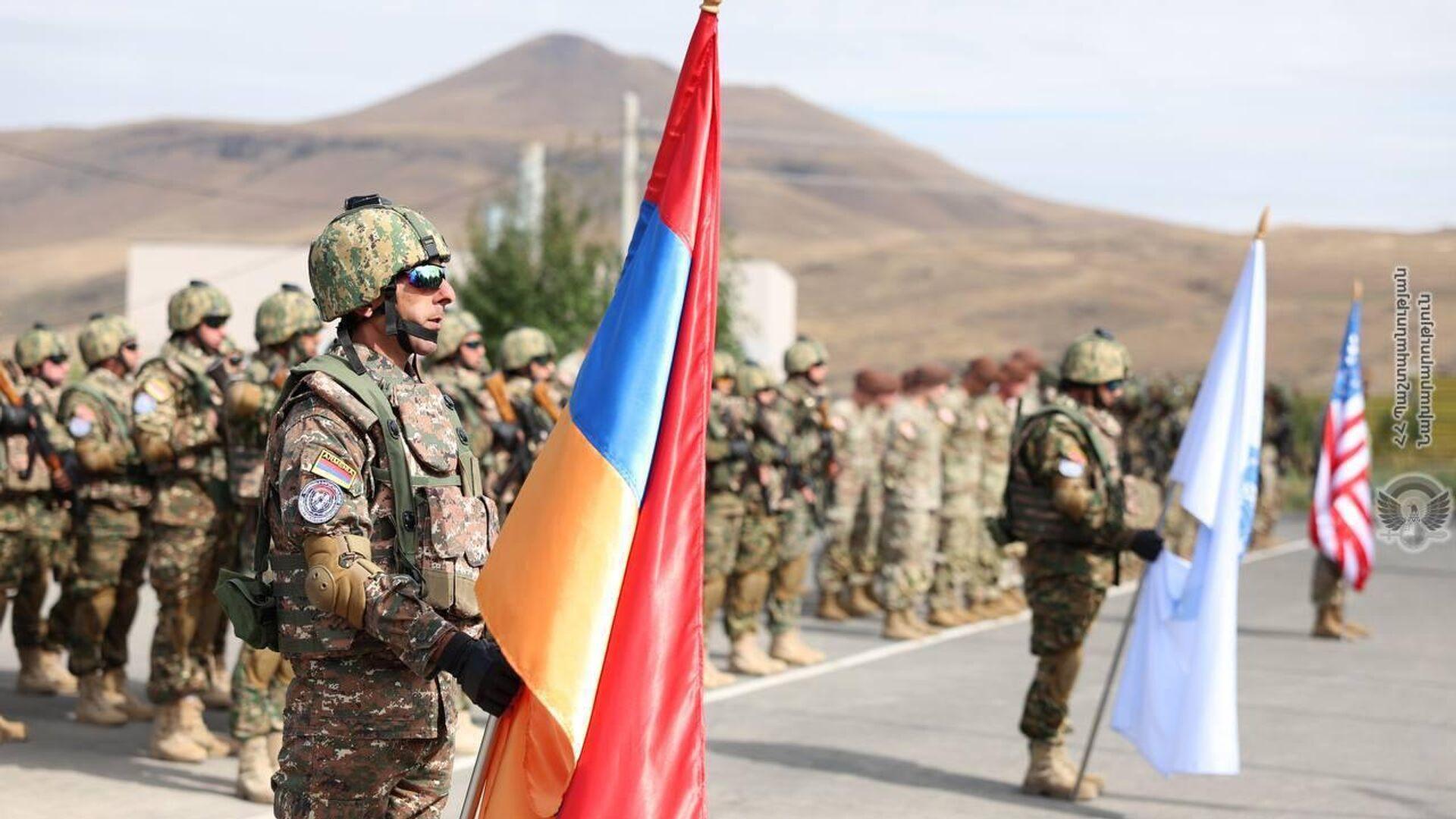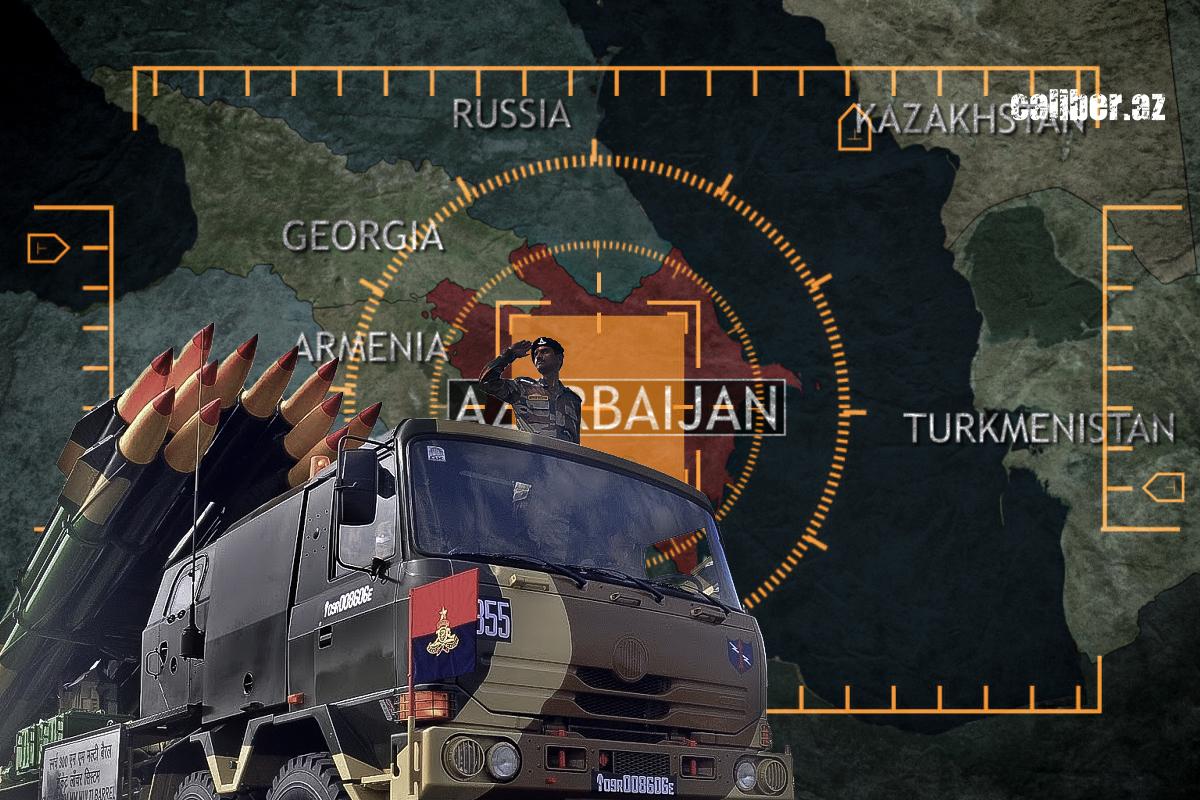US-Armenia drills: Boosting cooperation or upending regional peace? Analysis
Armenian media outlets enthusiastically covered the launch of the joint Armenian-American exercises "Eagle Partner 2024," which began the previous day. At the opening ceremony, Armenian Defense Minister Suren Papikyan emphasized that the collaboration between Yerevan and Washington aims to enhance coordination among units involved in international peacekeeping missions. The event was also noted for its attendance by US Ambassador to Armenia Kristina Kvien. Some Western sources interpreted these exercises as part of Yerevan's ongoing shift towards Western partners to lessen its reliance on Russia.
As if to support this thesis, Moscow, through the official spokesperson of the Russian Ministry of Foreign Affairs Maria Zakharova, referred to the exercises as an action undermining "Armenia's mechanisms of cooperation with Russia in the security sphere." This is because the American side, "by involving [Yerevan] in manoeuvres and training programs under its auspices, imposes NATO standards on the republic's armed forces," thereby granting "Westerners additional leverage over Armenia's domestic and foreign policies."
Iran would likely follow with a reaction, given that just a month ago, Acting Iranian Foreign Minister Ali Bagheri Kani underscored the importance of "strategic coordination and regular consultations" between Tehran and Moscow, amidst increased foreign intervention in the affairs of the Caucasus region. He emphasized the use of "the potential of regional mechanisms" like the "Three Plus Three" platform (involving Azerbaijan, Armenia, Georgia, Iran, Russia, and Türkiye). A response from Iran may follow soon. However, if not, it suggests that Tehran does not view the Armenian-American exercises as external interference in the affairs of the South Caucasus region.
As for the position of the Washington administration itself, there is a blatant contradiction. On the one hand, following the results of the recent trilateral meeting on the margins of the NATO summit (US Secretary of State Anthony Blinken, Foreign Ministers of Azerbaijan and Armenia - Jeyhun Bayramov and Ararat Mirzoyan), the US State Department's Chief of Staff Matthew Miller said the US foreign policy chief called for "further steps to finalise the peace agreement between Baku and Yerevan as soon as possible", stressing "the importance of peace in promoting regional connectivity that should benefit the entire South Caucasus". On the other hand, the White House gives the go-ahead for military exercises between Armenia and the United States. Is this the implementation of Blinken's call for the "swift signing" of a peace agreement? And there is no need to think about who these exercises are directed against and why?

Then let us also turn a blind eye to the militarisation of Armenia, the latest manifestation of which was the supply of sniper rifles to Armenia by the Indian company SSS Defence, as Caliber.Az reported. Here we will also refer to the leaked information about Armenia's plans to purchase operational-tactical missiles Pralay from the same India with further aiming at hypersonic missiles BrahMos. And then, as the "cherry on the cake", the joint exercises between the United States and Armenia are highlighted.

Indeed, there is no other way but the path to peace. There's no revanchism, no probing for new manifestations of anti-Azerbaijani aggressive aspirations on the part of our geographical neighbours. Although why should we be surprised, if what is happening is seen as a continuation of the notorious trilateral April agreements (US-EU-Armenia), according to which the US pledged to provide Yerevan with expert support for the so-called Strategic Defence Review and the development of Armenia's new military doctrine. Let's also note Washington's then fixation on the necessary assistance to Yerevan "to significantly develop military and defence capabilities and strengthen border control and border security, with particular attention to controlling the border with Iran" (and Tehran's silence).
Alongside this, Armenia recently confirmed the initiation of construction for a new nuclear power plant during Armenian-American negotiations. This occurs despite Armenia already having a nuclear power plant near Metsamor, where Washington has advocated for the complete replacement of Russian nuclear fuel with American one.
Adjacent to these anti-Azerbaijani manifestations, in July, co-chairs of the Committee on Armenian Affairs of the US Congress issued a joint statement reviving contentious narratives of so-called "ethnic cleansing" in Karabakh.
In another instance, USAID head Samantha Power attempted to resurrect the outdated and unsubstantiated claim of “forcibly displaced” Armenian populations in Karabakh. While lacking evidence, such narratives are disseminated widely to foster anti-Azerbaijani sentiments globally.
Nothing changes. True, perhaps, the "double standards" towards Azerbaijan are expanding in volume, becoming "dimensionless", but in essence, the anti-Azerbaijani handwriting of the relevant Western international structures and individual political leaders does not change. However, as has been repeatedly emphasised, despite any attempts at blackmail and pressure, official Baku is confidently strengthening the country's national independence and moving towards new geopolitical heights.
By Teymur Atayev
The views and opinions expressed by guest columnists in their op-eds may differ from and do not necessarily reflect the views of the editorial staff.








